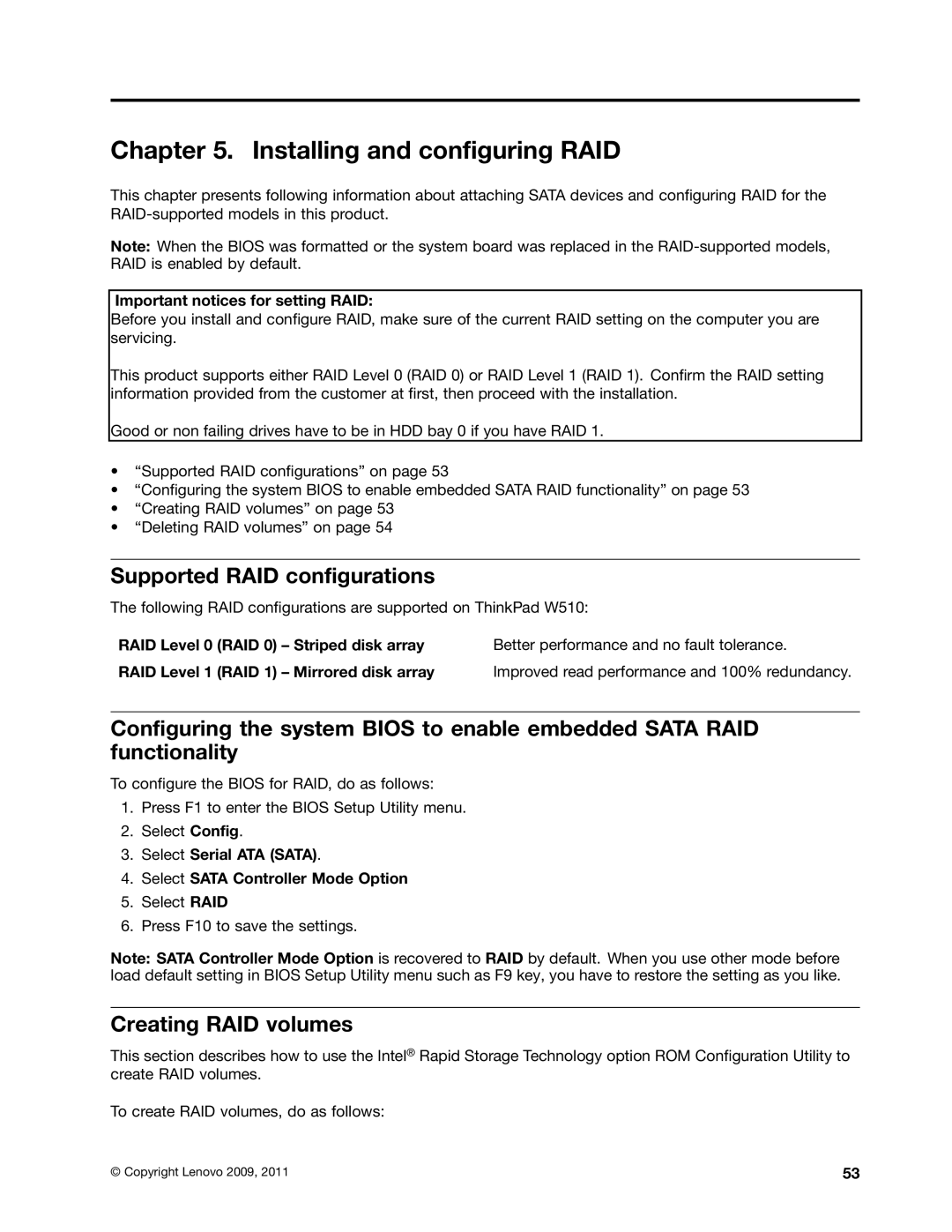
Chapter 5. Installing and configuring RAID
This chapter presents following information about attaching SATA devices and configuring RAID for the
Note: When the BIOS was formatted or the system board was replaced in the
Important notices for setting RAID:
Before you install and configure RAID, make sure of the current RAID setting on the computer you are servicing.
This product supports either RAID Level 0 (RAID 0) or RAID Level 1 (RAID 1). Confirm the RAID setting information provided from the customer at first, then proceed with the installation.
Good or non failing drives have to be in HDD bay 0 if you have RAID 1.
•“Supported RAID configurations” on page 53
•“Configuring the system BIOS to enable embedded SATA RAID functionality” on page 53
•“Creating RAID volumes” on page 53
•“Deleting RAID volumes” on page 54
Supported RAID configurations
The following RAID configurations are supported on ThinkPad W510:
RAID Level 0 | (RAID 0) – Striped disk array | Better performance and no fault tolerance. |
RAID Level 1 | (RAID 1) – Mirrored disk array | Improved read performance and 100% redundancy. |
Configuring the system BIOS to enable embedded SATA RAID functionality
To configure the BIOS for RAID, do as follows:
1.Press F1 to enter the BIOS Setup Utility menu.
2.Select Config.
3.Select Serial ATA (SATA).
4.Select SATA Controller Mode Option
5.Select RAID
6.Press F10 to save the settings.
Note: SATA Controller Mode Option is recovered to RAID by default. When you use other mode before load default setting in BIOS Setup Utility menu such as F9 key, you have to restore the setting as you like.
Creating RAID volumes
This section describes how to use the Intel® Rapid Storage Technology option ROM Configuration Utility to create RAID volumes.
To create RAID volumes, do as follows:
© Copyright Lenovo 2009, 2011 | 53 |
